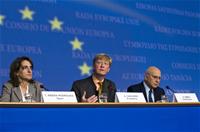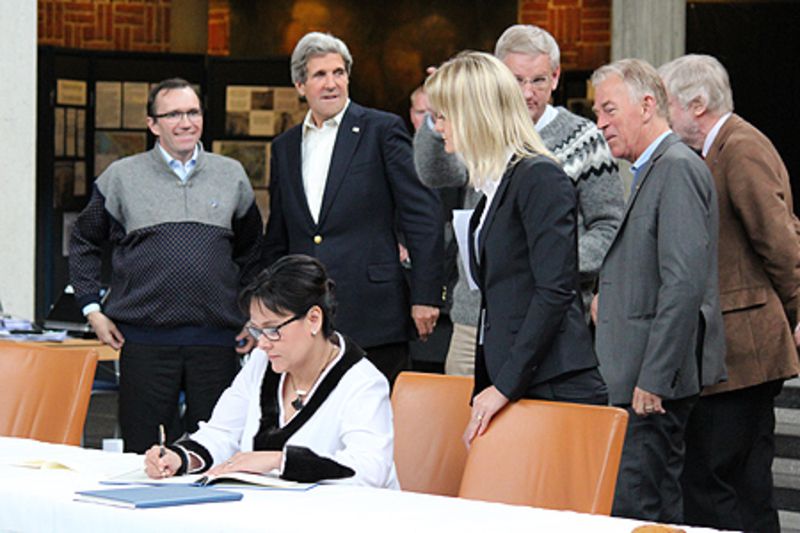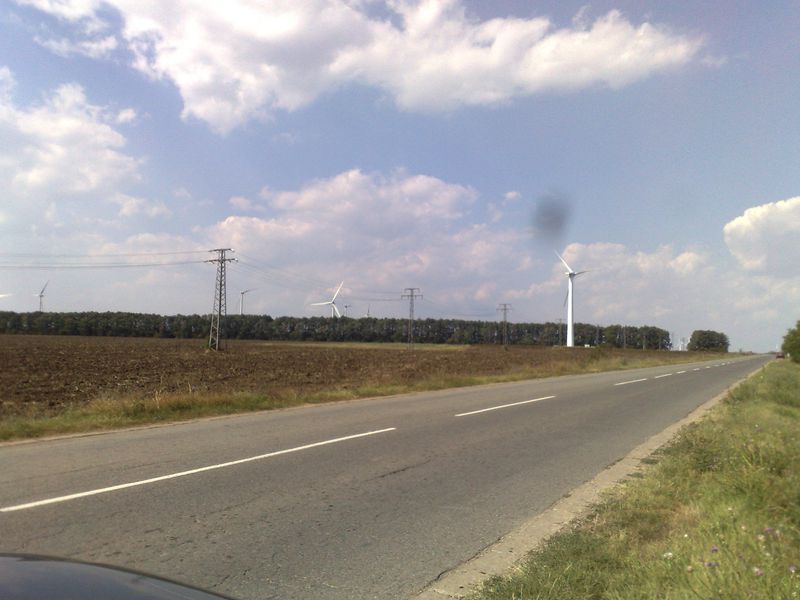The EU is on its way to fulfil its commitments on the Kyoto protocol
Adelina Marini, October 23, 2009
 This is written in the conclusions of the Environment Council of the EU, which ended on Wednesday in Luxembourg. The conclusions are based on the latest inventory for 2007. The inventories are made for a period of 2 years behind. Nevertheless, the European ministers of the environment insist in their conclusions, which will serve as a basis of the common European position at Copenhagen, for a more ambitious engagement of the developed countries. The appeal is by 2050 global carbon emissions to be reduced in half while the developed countries agree to reduce theirs by 80% for the same period of almost 40 years. The basis for comparison would be the year 1990. This is exactly the position Bulgaria is defending, presented at the Council by the minister of the environment and waters Ms. Nona Karadzhova.
This is written in the conclusions of the Environment Council of the EU, which ended on Wednesday in Luxembourg. The conclusions are based on the latest inventory for 2007. The inventories are made for a period of 2 years behind. Nevertheless, the European ministers of the environment insist in their conclusions, which will serve as a basis of the common European position at Copenhagen, for a more ambitious engagement of the developed countries. The appeal is by 2050 global carbon emissions to be reduced in half while the developed countries agree to reduce theirs by 80% for the same period of almost 40 years. The basis for comparison would be the year 1990. This is exactly the position Bulgaria is defending, presented at the Council by the minister of the environment and waters Ms. Nona Karadzhova.
Within the Union, there are several basic criteria that will be used to estimate the capabilities and responsibilities of the developed countries: the capability to pay for domestic emission reductions and to purchase emission reduction credits from developing countries; the greenhouse gas emission reduction potential; domestic early action to reduce greenhouse gas emissions; and something very important - population trends and total greenhouse gas emissions, in order to prepare the EU for a decision whether to step up to a 30% emission reduction commitment and not as agreed so far - 20% reduction.
The Environment Council in Luxembourg has also decided that it would be better if in the Copenhagen agreement an additional engagement is included - the aviation and maritime transport industries. The recommendation is both industries to cut their emissions by 10% and by 20% respectively by 2020, using as a basis the levels before 2005.
According to the environment ministers it is also very important that carbon markets are established and that is why it is equally important to set a price of the carbon emissions through the mechanisms for cap-and-trade and other market oriented systems that will stimulate investments in low carbon technologies. The ministers insist that the developed countries, especially those from the OECD to link their carbon market with other developed countries no later than 2015. Bulgaria is a candidate of the OECD. The target is to achieve a fully integrated global carbon market.
And if now the inventories are being made every 2 years, the ministers recommend this to be done annually. Last but not least the Council recommended the period after Kyoto, starting on the 1st of January 2013 to be legally binding for everyone so as to guarantee continuity in the work of the future Copenhagen agreement if it is adopted in December.
But according to the online media EurActiv, the EU still has no idea how to deal with the billions of unused carbon credits, piled up according to the Kyoto protocol by Russia, Ukraine and other post communist states in Eastern Europe. The main problem is as lawmakers worry about the continuity of the carbon market beyond 2012. And this is one of the foundations of the Bulgarian position - the piled stocks to be transferred in the next period so as to be banked and traded whenever a good mechanism for this is developed and whenever a price is set.
However the Russians have accumulated something like five billion units during 2008-2012 which is equivalent to the effort expected from the entire EU during the upcoming 2013-2020 period, said Stefan Singer, director of global energy policy at WWF. The possibility Russia and Ukraine to transfer their surpluses beyond 2012 would practically "sink" the negotiations on the new climate change deal. "There is a lot of money involved. We haven't clarified our position on this in detail", said the European Commission's environment spokesperson Barbara Helfferich, quoted by the EurActiv.
Kyoto targets were decided based on 1990 emission levels. But in the wake of massive deindustrialisation that followed the fall of communism, Eastern European countries are now finding themselves sitting on a huge stockpile of unused pollution credits. (you can see the data about Bulgaria here).
 | © Government of Sweden
| © Government of Sweden | © КРИБ
| © КРИБ | © euinside
| © euinside